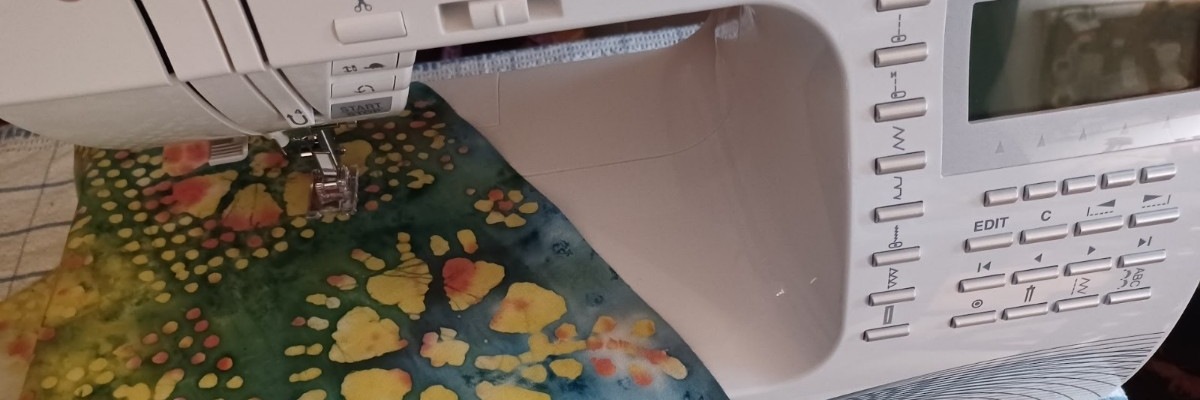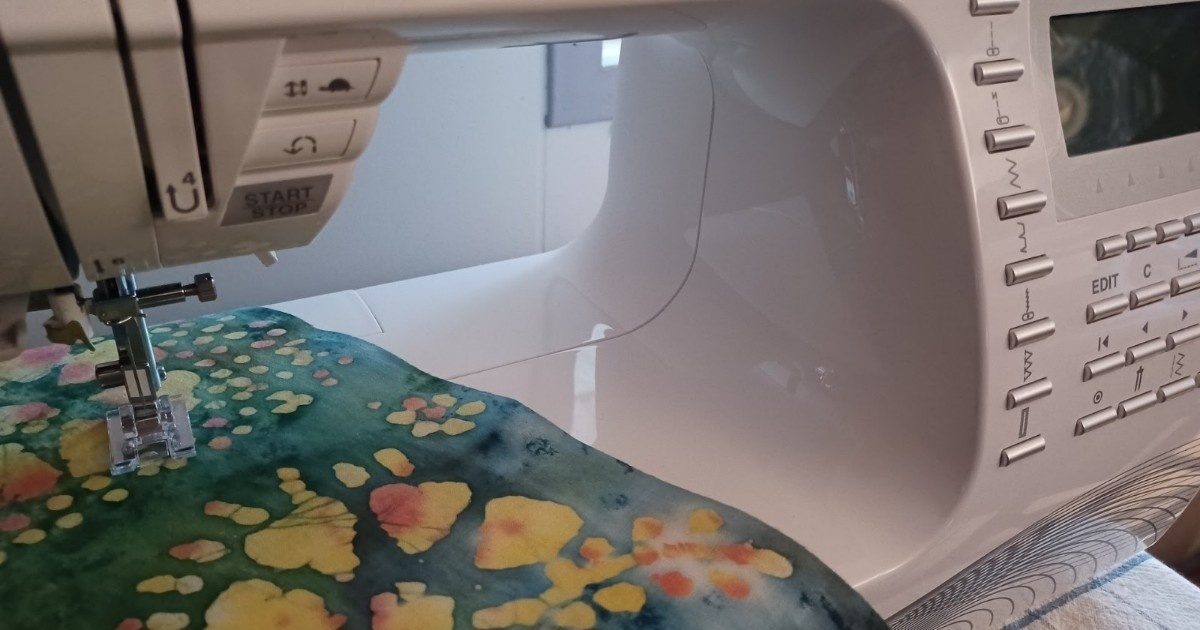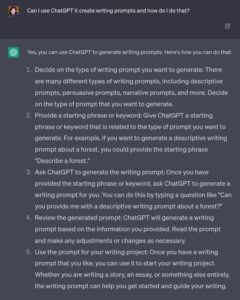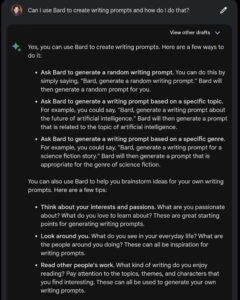During your writing career, you’ll need to pull out a few tricks to overcome writer’s block. Writer’s block is when the words don’t flow from your brain, through your fingers, and onto the screen in entertaining, informative, and correct words.
Writer’s block doesn’t have to happen to you, and it’s not the end of your writing career.
To avoid being at a loss for words, set yourself up for success and learn the techniques experienced writers use to enhance their creativity, generate new ideas, and stay motivated. Here are my best tips to help you avoid writer’s block and keep your productivity in high gear.

TL;DR
- Writer’s block is a common problem that every writer faces at some point in their career.
- Writer’s block can be caused by stress, a lack of inspiration, fear of failure, or the need to be perfect.
- To overcome writer’s block, identify the problem, and try techniques like freewriting and mind mapping to get your writing on track.
- It’s okay to use AI to help with research or to give you ideas, but you should always write your own content.
- Don’t give up when you experience writer’s block. It’s temporary and can be overcome with time and effort.
What is writer’s block?
It’s easy to become confused about what to do when you’re in the middle of an overwhelming task. Writer’s block is a negative way of expressing a lack of ideas or a problem focusing on the topic you’re writing about.
Writer’s block is temporary and has many solutions. The best way to overcome writer’s block is to prevent it from happening in the first place.
Every writer has times when their brain blocks their flow of words. No matter how hard they try, they can’t create new written content or they have difficulty coming up with new ideas. The problem is that they can’t express their thoughts in writing. This can be frustrating and may lead to missed deadlines or unfinished projects.
When you find yourself in this situation, ask yourself these questions:
- Are you blocked creatively?
- Are you stalled on a current project?
- What is the nature of the block?
- What are its physical manifestations?
- Why is it important to write?
- What need does it meet?
Creative blocks can sometimes emerge from our feelings and attitudes. The trick is to silence this inner voice, for example, by practicing freewriting. The object isn’t to be productive. Instead, it’s to tell your inner voice to bug off!
As a bonus, this freewriting can give you something to work with on your current project or the next one.
If you’re stalled on a project, step back and determine which part of the process you’re struggling with. Sometimes looking over your outline, reviewing the project instructions, or reading what you’ve written so far can help you sort out the problem.
If you can’t write an entire article, write a summary of it to identify the weak spots in your work. Also, techniques like brainstorming and mind mapping can help you generate ideas and get your writing project back on track.

If you’re thinking about letting an AI finish your writing assignment for you, don’t do it! It’s okay to use an AI to help with research or to give you ideas. But never, and I said NEVER, turn in writing that’s been generated by an AI. You’ll find yourself on everyone’s blocklist, and you’ll never write for hire again.

What are the physical effects of writer’s block?
The stress and frustration of not getting your work done can leave you feeling inadequate and hopeless. When you feel these negative emotions, it can make you physically sick. And when you don’t feel well, it’s even harder to get any writing done.
Still, writer’s block is not a physical condition. However, it can manifest in physical symptoms, such as:
- Headache
- Muscle tightness
- Feeling tired
- Can’t sleep
- Upset stomach
- Dizziness
- Shortness of breath
If you experience writer’s block, remember that you are not alone. There are many things you can do to overcome writer’s block. The most important thing is not to give up. Writer’s block is temporary. You can overcome it with just a little time and effort and get back to writing.
Does your writing schedule leave you feeling stressed out? Let’s Talk About Mental Health has some great tips on how to deal with these feelings and get back to writing.

Why do writers experience writer’s block?
Writer’s block can be caused by stress, a lack of inspiration, the fear of failure, or the need to be perfect. Writing is a tough job, and it takes self-confidence and brain power. And sometimes, our confidence and brains run out of energy and need fuel.
That’s because writing is more than putting thoughts into words and then getting those words onto a screen. Your writing must capture your readers’ interest and convince them to keep reading. To get your message across, you must get their attention and have a firm grasp of their interests to pique their curiosity.
Creativity is the main ingredient in engaging and informative articles, manuals, and other written pieces. Creating images in the reader’s mind is an art. And your creativity provides that clear and crisp depiction.
While creativity may come naturally to many people, some experience a block or something that prevents them from getting their creative juices flowing.
So, what do you do when your mind goes blank? While no one can give you surefire ways to get the perfect ideas, there are easy ways to get your creative juices flowing.
None of these tips guarantee you’ll have the perfect mindset. Still, many of these methods may aid you in achieving that state of mind that helps you overcome writer’s block.

Are you wondering why there’s a sewing machine in this article? Stitching fabric and stringing words have a lot in common. Sometimes you get stuck. Other times you feel like ripping it apart at the seams. Still, you can end up with something that’s useful, unique, and eye-catching.

Tips to overcome writer’s block when you don’t feel like writing
The trick to overcome writer’s block is to make your writing, creativity, and goals a priority. It may be that you don’t feel up to the challenge. Then again, you may keep thinking of the other things you need to do in your life. All these things and more can leave you feeling overwhelmed and cause you to lose your concentration.
How do you get over writer’s block? There are several ways to overcome writer’s block and start writing again. But every writer is different, and what works for one person may not be as effective for someone else.
That’s why I collected this long list of techniques experienced writers use to enhance their creativity and stay motivated. Scan this list, give each a try, and use the ones that work best for you.
Write at your best time and make it a routine
Freelance writers tend to work all kinds of odd hours. Plus, they don’t stick to a schedule like someone who works in an office.
This was me early in my career. Up half the night, a few hours of sleep, and then pulling a 12-hour shift the next day. It played havoc on my social life, my health, and my love life.
The fix? I finally found my writing groove. After setting a writing schedule, my life improved and my productivity took a big leap.
Everyone has a different peak time when they do their best work. Some people are morning people, while others are night owls.
Figure out what time of day you are most productive and creative. Then, schedule your writing time during that period. You may find you’re more focused during this time, which helps overcome writer’s block.
You may also want to set goals for this writing time. Your goals may be to write for a certain amount of time or write a certain number of words. Setting writing goals can motivate you to focus and work harder.
Write without editing to keep your thoughts flowing
It’s easy to be critical of your own work and feel the need to make everything perfect. Perfectionism is a common cause of writer’s block. Some writers get stuck while trying to write the perfect sentence or paragraph. And other writers edit their work until there’s nothing left to edit.
To overcome this obstacle, write without editing. Forget about grammar and spelling. Leave the formatting for later. Just write down your ideas as they come to your mind. You can always go back and edit later.
The goal is to get your thoughts down in pixels and keep the momentum going.
Write in a different format to change your routine
When you’re struggling to write in one format, such as a blog post or a whitepaper, write something different. For example, if you’re struggling with a whitepaper, start on that gothic horror novel that’s brewing in the back of your mind, or be productive and write a cover letter for your freelance writing job hunt.
Changing the format can help you break out of your rut and stimulate your creativity.
Freewrite about anything you want
Freewriting is writing without stopping or editing. And without thinking about grammar or spelling. Plus, it doesn’t need to make sense or be well-structured.
The purpose is to generate ideas and overcome the mental blocks you may have. The goal is to keep your fingers moving on the keyboard and your ideas flowing.
Set a timer for 10 to 15 minutes and write what comes to mind. Choose any topic or subject, from your personal experiences to your creative imagination. You could even write a review of that new band you listened to on the radio.
This technique overcomes writer’s block by allowing you to explore different perspectives and ideas without the pressure of creating a polished final product.
If you’re still stuck and don’t know what to write about, write about why you think you have writer’s block. Who knows. You may find the reason for your inability to put words on the page.
Keep a diary or a journal to jot down ideas and experiences
Your senses can direct you toward great ideas. Anything you hear, see, touch, taste, or smell can cause a creative spark.
Keep your journal with you and write your ideas and experiences in it. Your journal is also a good place to record things you’ve read or heard.
Someone’s ideas could be used to develop your own ideas (this is not stealing or plagiarism). Ideas and creativity can come from anywhere. It’s the development of those ideas that makes it unique.
Create a system to capture ideas while you’re living your life and NOT trying to write. This system could be a paper notebook, a journaling app, a note-taking app, or the recorder and camera on your phone.
It doesn’t matter what you use as long as you can save these ideas and capture the information as soon as you think about it.

Are you looking for a software solution to keep notes and record your ideas while you’re on the go? My friends at Android Police put together this handy list of the best note-taking apps you can use on your smartphone or tablet.
With your notes and ideas safely recorded in your journal, you can pull from it for your future writing projects. This way, you’ll never stare at a blank page with the cursor blinking at you.
Use writing prompts to find your writing inspiration
Writing prompts are a great way to get your creative juices flowing. These prompts can be simple or complex. And they can be about any topic or subject.
A writing prompt can be a single word, an item on your desk, or how you’re feeling. It can also be complex, such as a sentence from a book, or a scenario, such as a time traveler who visits ancient Rome.
Writing prompts can help you get started and provide a framework for your writing.
The web is full of websites that offer lists of writing prompts. Open a web browser and search for “writing prompts.” The Google Play Store and Apple App Store are good places to find apps that generate writing prompts on your phone or tablet. This is a great way to find prompts when you’re away from your office.
AI tools such as Google Bard and ChatGPT will generate prompts if you know how to ask. I asked these services how to create writing prompts. Here are the responses:
Read and research to expand your horizons
If you love to read and learn new things, this is the perfect way to overcome writer’s block.
Sometimes reading someone else’s writing gives me ideas or shows me how to fix a writing problem that I’m having. Reading and researching stimulate my imagination.
Stimulating your imagination is vital to your writing. It doesn’t matter how you do it. Sometimes, unrelated topics bring new ideas for your writing projects.
Read a book or article on a topic that interests you, and journal about the compelling or inspiring aspects of the writing.
This research will fill any gaps in your knowledge. It also generates new ideas and perspectives you may not have thought of. It can also stimulate your brain and get your creative juices flowing.
Use a mind map to visualize your brainstorming sessions
Brainstorming is generating ideas by writing down everything that comes to mind. Begin with a central topic or idea, then write down related words or phrases. Don’t worry about the quality of the ideas.
When you have a list, refine your ideas and choose those that are relevant to your project.
A mind map organizes your ideas. It uses the information collected while brainstorming. And colors, shapes, and symbols represent different ideas and themes. Mind maps help you visualize your ideas and make connections between them.
Why should you create a mind map, and what is the best way to use it? Cajun Koi Academy explains mind mapping and offers an example of how to use one effectively. Complete with pretty pictures.
Set the mood for productive writing sessions
Before I start a writing session, I set the mood. This trick helps me focus during the entire session. My mood varies and depends on how I feel, the project I’m working on, and other activities that may be going on outside my home office.
Sometimes I prefer some quiet solitude. Other times I put on one of my jamming playlists and let the music set the rhythm for my work. (Don’t tell anyone, but I like to dance while I’m editing.)
Setting the mood allows you to go with the moment and lets you feel what makes your mind work best. Finding out what makes you tick helps get your creative juices flowing. Set a pace and tempo, and everything else will follow.
There are many ways to set the mood. Some good, and some bad. Some writers use alcohol, which I do not recommend. Positive ways are to play mood music or let the lighting of the environment create the mood. Or, you may prefer a certain view, maybe of your garden, that enlivens your creativity.
Change the environment to change your attitude
Our minds tend to run away from difficult things. Sometimes, a change of scenery does wonders for your creativity and helps you overcome writer’s block.
If you’ve been staring at a blank page and are ready to pull out your hair in frustration, step away from the computer.
I like to go for a walk or spend one-on-one time with my favorite pal. Other writers visit a coffee shop, work in a different room, or go to the library.
Whatever you choose to do, don’t think about your writing. Let your subconscious work on it while you enjoy the change of pace.
Changing your environment can stimulate your mind and provide a fresh perspective, leading to new ideas. And every place has its own vibe. Some have better energy than others for writing.
Find those places that work for you. Any space can work. But you may find that solitude and private space are critical. Or, maybe you prefer the company of someone who listens to you and helps you sort things out.
Be alone so that you can focus
This one doesn’t need much explanation. There are times when the more alone you are, the better. A writer needs to stand apart from the crowd, from everything, really.
Solitude creates an atmosphere that lets your imagination run wild. Plus, being alone without distractions can overcome writer’s block because you aren’t stressed or preoccupied with the world that’s usually around you.
Take a break, reset your brain, and overcome writer’s block
Some writers experience writer’s block when they feel burned out. If writing leaves you exhausted, you may need to do more than take a walk in the park. You may need to give your brain a vacation and do something else you enjoy. You need time to relax and sort things out.
A jumbled mind doesn’t create new ideas. You need a clear mind to charge your creativity to full power. Choose an activity that’s unusual from your daily routine to get out of your writing funk.
Go on a getaway, do something fun, cross something off your bucket list, or immerse yourself in your hobby. Let yourself go and have fun. This is a great way to have that adrenaline rush that makes the imagination go wild.
In no time at all, your creativity will make use of that experience and set your imagination on overdrive.
If you can’t get away, find other ways to shift your brain into high gear. Jim Kwik explains why taking a brain break is essential for brain health. He uses exercise as a brain break, and his favorite is juggling. Grab a tennis ball and be prepared for a quick lesson.
Try EFT tapping
I’ve never tried EFT tapping, but I know writers who have. It reduces the stress hormone cortisol, which is attached to the fight or flight response. Since writer’s block can result from stress and the fear of rejection, it may be worth a try. But be warned. It looks funny.
If you want to see if tapping will work for you, watch Brad Yates’ tapping videos on YouTube. There’s a whole playlist of videos that introduce tapping and show you how tapping can help in different situations.
Make it fun and enjoy the ride
Last, but not least, have fun. If you’re blocked, maybe you’re not enjoying your work. Find ways to keep the writing fun, even if you have to fool yourself.
Smile. Enjoy. Make yourself laugh. Play with metaphors. Learn to have a good time! Pretty soon, you’ll be stitching words together like you never have before.

Change your state of mind and overcome writer’s block
Writer’s block can be frustrating, but it is not insurmountable. Writer’s block comes when we are afraid of what someone will think if they read what we write.
Many writers tend to get too much into their own heads and focus too much on the prospect of failure. Don’t let yourself fall into this trap.
No one is watching you write. No one is looking over your shoulder and critiquing your words. It’s only you and your words. So, like the job seeker who must gain confidence to search for a job, you’ll need confidence in your writing skills so that you can let the words flow.
So, write anything that comes into your head or step away from your computer until you find the calm and creativity you need to get back to your writing project and meet your deadline. If you wait for your block to be removed, it never will be.
Good luck, break a leg, and stop freaking out about writer’s block. You are setting yourself up for failure when you do! Just remember, focus on what you can do, not on what you can’t. That’s the formula to becoming a successful freelance writer.
FIND RELATED ARTICLES


